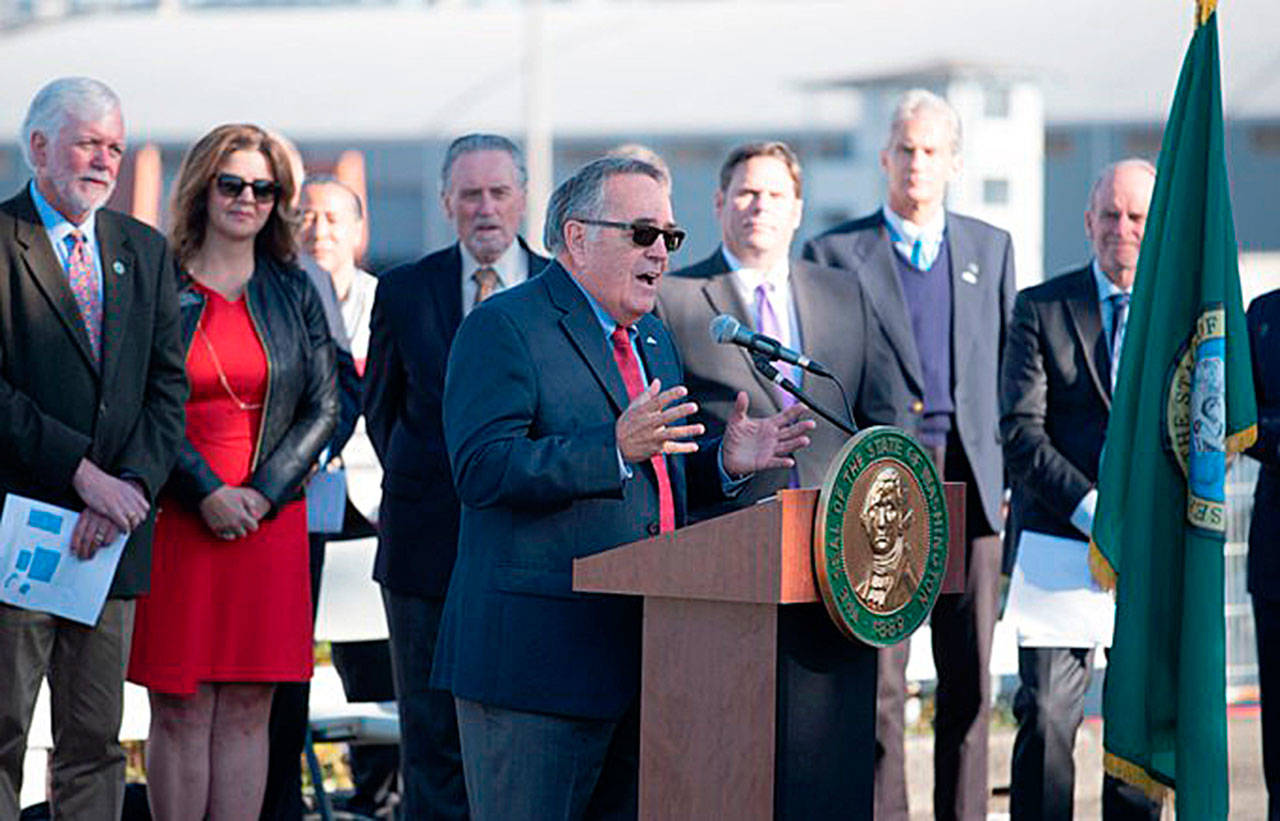The Puget Sound Gateway Program is about completing SR 167 in Pierce County and SR 509 in King County to improve connections to the ports of Tacoma and Seattle, respectively, and to regional manufacturing and industrial centers.
By thus sharpening the fourth-largest container gateway in the nation, state officials say, the program will improve the state of Washington’s national and global economic competitiveness.
On Tuesday morning, state and local dignitaries joined Gov. Jay Inslee on the Port of Tacoma’s Administration Building parking lot to launch the $1.96 billion project.
“It’s not just the intersection of 167 and the port, it’s not just an intersection of North America with Asia and all the jobs it’s going to bring to this community, but it’s also the intersection between confidence and timidity,” Inslee said. “And when we decided as the state of Washington to finish these projects, we opted for confidence in our future.
“I am excited for the building trades and for all the jobs this is going to create, and I am excited that we once again have shown confidence in the state of Washington. Because this means full funding not only for 167 and 509 but also for I-5 at JBLM, the city of Fife’s Port of Tacoma Road interchange and other critical Pierce County infrastructure. These things do not get built by accident, they get built because people put their shoulders to the wheel and really push these projects through,” Inslee said.
Port of Seattle Commissioner Peter Steinbrueck noted that not only will the project speed the flow to market of medical innovations, aviation technology, even apples and cherries from the Yakima Valley but also add jobs and build the economy.
In July 2015, the state Legislature and Inslee acted to fund the Puget Sound Gateway Program through the Connecting Washington Revenue Package. The Puget Sound Gateway Program is funded through the state gas tax, tolls, local contributions and potential federal grants. The total cost of the program is $1.96 billion.


